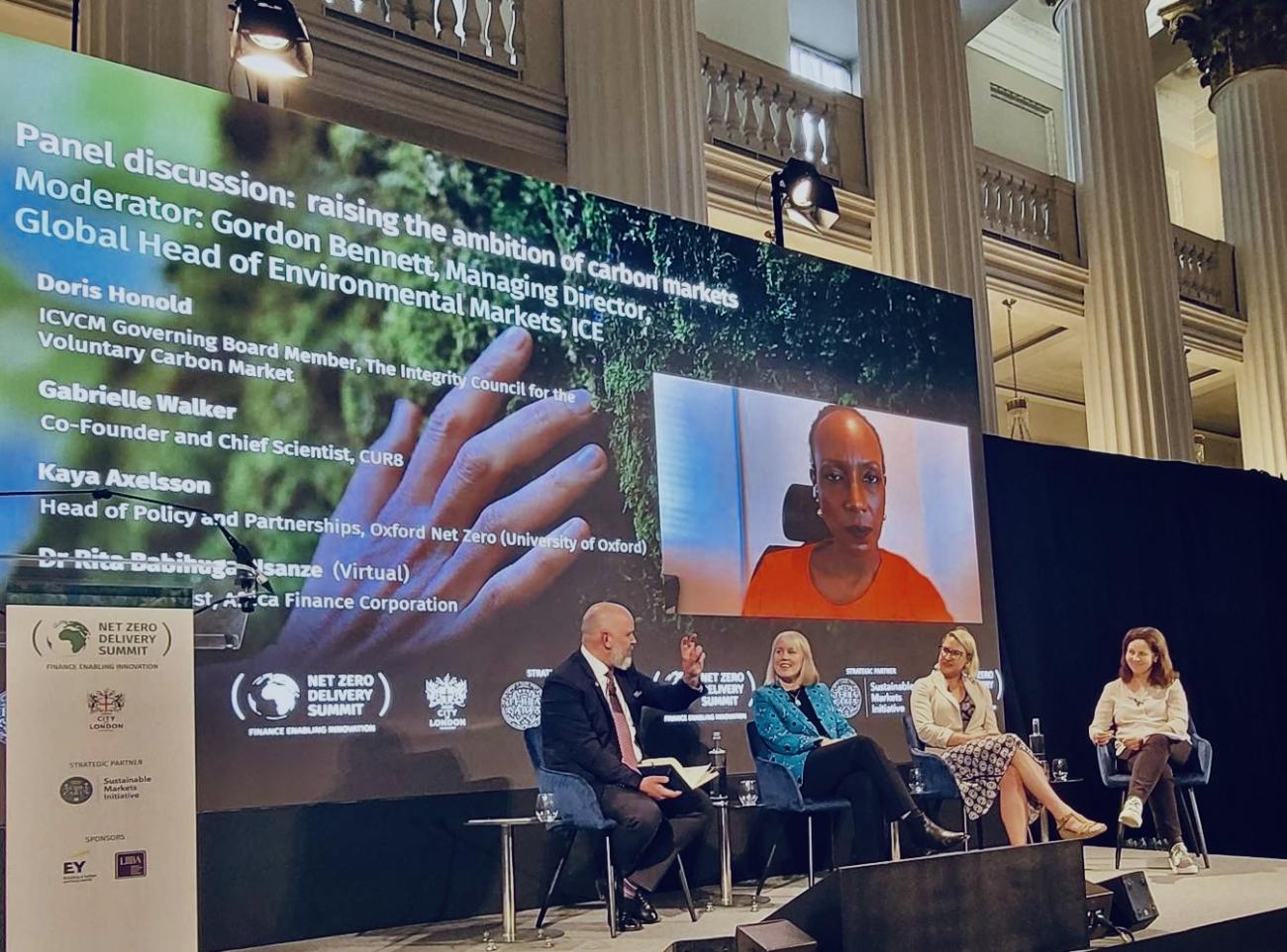Research Fellow Kaya Axelsson at the Environmental Change Institute was invited to speak at the City of London's Net Zero Delivery Summit recently. The 3rd Net Zero Delivery Summit at the Mansion House in London took place on 4 June and was live streamed to a global online audience.
The summit was hosted by the Sustainable Markets Initiative, an organisation founded by HM King Charles III, when he was The Prince of Wales, in partnership with the City of London Corporation.
Organisers say: “In a year when more people around the world are voting in elections than at any other time in history, the international summit aims to focus attention on turning commitments made at previous COPs into action ahead of COP29.”
The summit, delivered at the halfway milestone between COP28 in the United Arab Emirates and COP29 in Azerbaijan, will put the need for innovative approaches and products for achieving net zero at the heart of its agenda. It will focus on:
- Maintaining momentum in the private sector to deliver on key commitments made at COP28 including transitioning away from fossil fuels, the tripling of renewable energy capacity and the scaling of green technologies such as carbon capture and storage;
- Discussing the critical role of the financial and professional service sector in helping the wider economy achieve net zero;
- Securing the UK’s position as a one-stop shop for green finance expertise
Hosted by the Lord Mayor of London, Michael Mainelli, with participation by the UK government and high-level international stakeholders, the summit featured a series of keynote speeches, fireside chats and panels.

L-R (sitting): Gordon Bennett, Gabrielle Walker, Kaya Axelsson and Doris Honold. With Rita Babihuga-Nsanze on screen behind
Kaya Axelsson, a Researcher with the Climate programme at the Environmental Change Institute and also Head of Policy and Partnerships at Oxford Net Zero reflects on the day:
It was an honour to speak at the City of London's Net Zero Delivery Summit marking a halfway point ahead of the next Climate Conference of Parties.
The panel featured leading voices working to reform and strength carbon markets. Key takeaways:
Gordon Bennett noted the consensus that we must reduce and remove carbon in parallel. This aligns with the updated Oxford Offsetting Principles. The mitigation hierarchy should guide prioritisation, but not the sequence of emissions reduction and removal activities. Corporates need to build robust science-based strategies and start purchasing now.
Rita Babihuga-Nsanze challenged the stereotype that demand comes from the global north and supply from the global south, citing powerful examples of climate ambitious industry in African driving both demand and supply of high-quality removal credits (particularly out of Kenya) today.
The ever gracious Doris Honold spoke to the critical work of the ICVCM to create a common set of Core Carbon principles to help create new trust in the market.
The indomitable Gabrielle Walker cited regulation and policy momentum as a key drivers to grow a reformed, high integrity carbon market.
I had a chance to speak to the way we help corporates maintain both investment and integrity in their claims based on different types of projects. The boom and bust cycle of the voluntary carbon market has been exacerbated by a counterproductive debate over offsetting, but we can help companies and the market find a way through the mud by making a distinction between credits which are fit for different purposes:
Credits based on high durability removals can help companies 'compensate' for their own hard to abate emissions while credits based on avoided emissions projects can help companies 'contribute' to Global net zero. A contribution approach also gives companies and project developers more flexibility to experiment and adapt to the needs of local communities and projects.
I am very grateful to conveners of ongoing constructive dialogues like this one and to Gordon for his super entertaining moderation which held the audience without a doubt through what could have otherwise been post lunch nap time and instead turned out to be a lot of fun.

